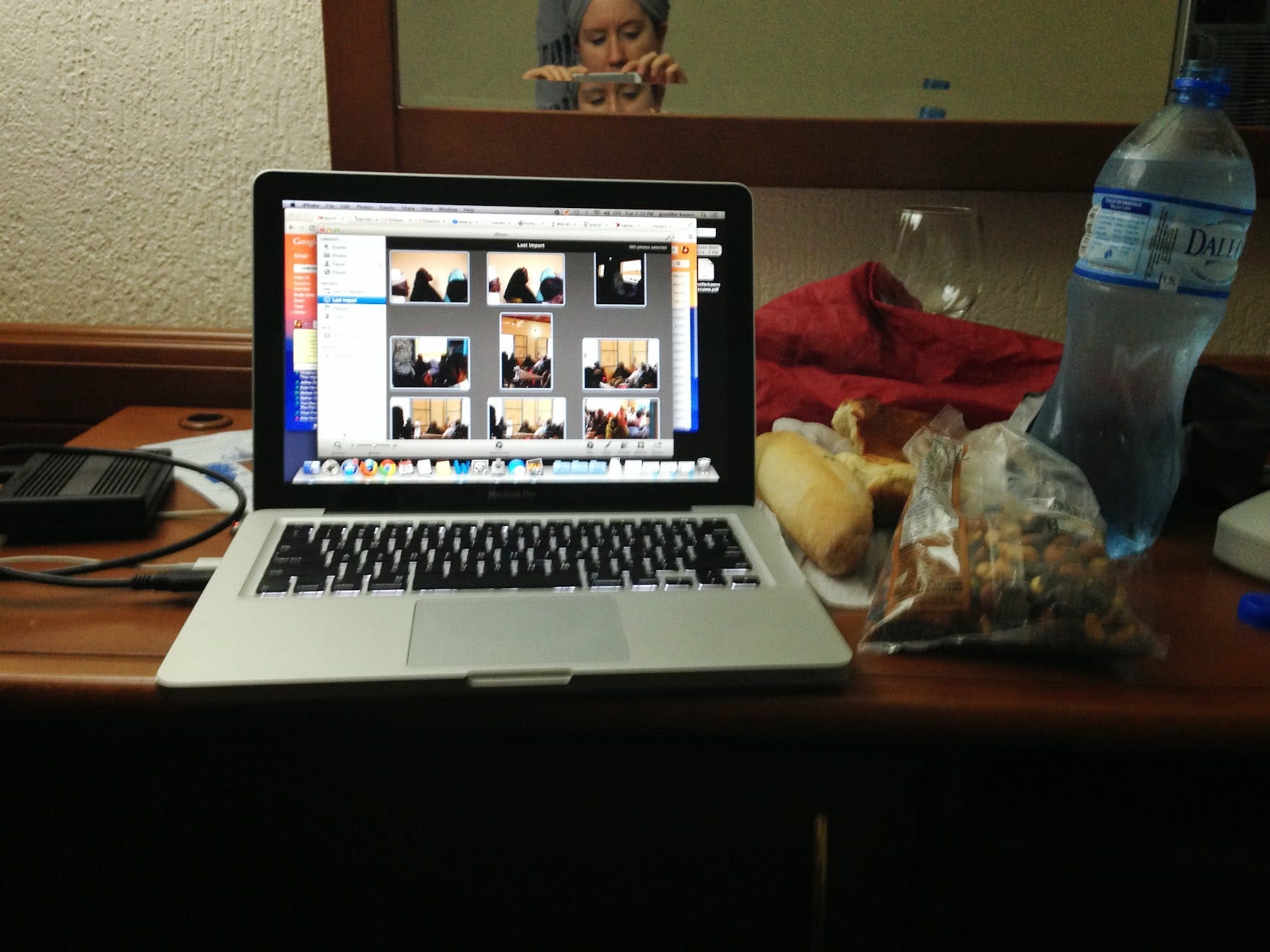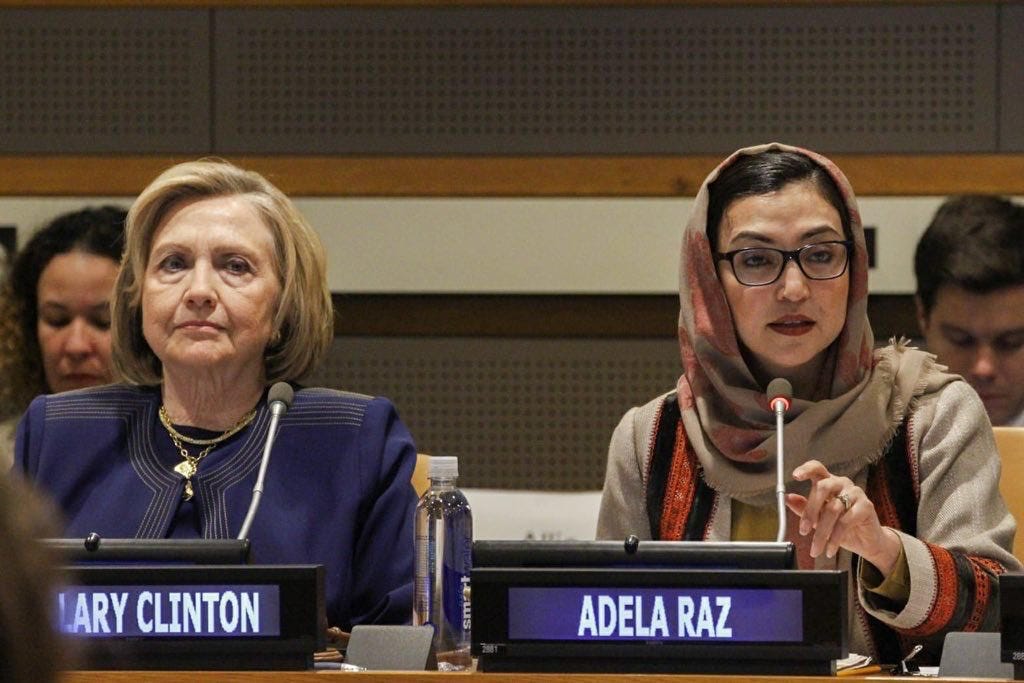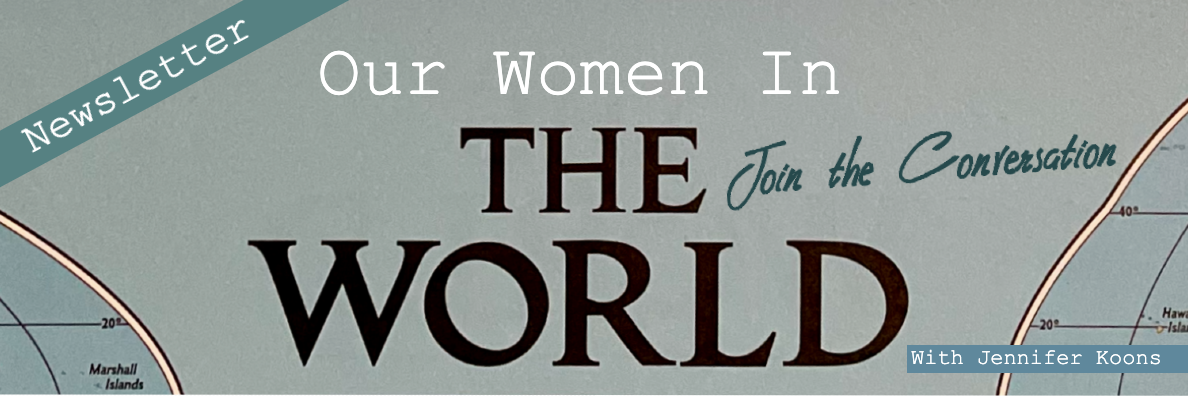Men Who Write About Women in War Zones
The Serious, Strong and Good Work of Covering Foreign Policy & Power

There have been a few moments I thought might change my professional life. Arriving in Niamey in 2014 was certainly one of them.
And it did. It did change my life, but not in most of the ways I hoped. I suppose that’s self-evident by the fact I’m bylining a Substack newsletter instead of the New York Times Magazine. We aren’t supposed to lament our loxsses or interrogate cravings that are big and salivating… and denied. It’s a turn off on the page as much as it is in person, most of the time.
There’s no hangover quite like the regret of hitting publish on something that might make me appear ungrateful, untalented or uncontained. All of which is to say that I didn’t dream up this scenario when I set out to be a foreign affairs journalist writing narrative-driven stories about power and resilience. [Though maybe I should have as I cannot claim to be a man who writes about women in war zones, supporting links omitted in accordance with the above.]
But then there are moments when it all makes sense, and it’s that rare synchronicity in storytelling that you either find divine or … there isn’t an or. I wrote about Fawzia Koofi last week, and went with a headline I’d been sitting on for more than two years. It’s true in the way the truth always is and I know it was probably read as an opinion, which it wasn’t but that’s still a dangerous thing for what I do and want to do.
Fawzia knows this. She’s been written about extensively in prestige publications and by prestigious writers and she’s written her own story too, of course. And yet I have never seen anyone get at her uncontained craving and skill or the inherent talent and the feeling she brings to interactions, one-on-one and before the United Nations. She’s a big personality and a “politician” as a term of respect. She’s loud and shrewd and tireless and all these qualities we admire in leaders we coronate on the page with much more fanfare than this.
If you haven’t already, I hope to soon introduce you to Dr. Habiba Sarabi. The most experienced and accomplished person in almost any room, who can hold that truth without any corresponding posturing. She listens with intention and acts accordingly. She falls back to walk beside the invisible, overlooked or under-estimated members of any society, sharing power instead of bestowing crumbs.
She’s also the first Afghan woman to run as the vice president on a major political party’s ticket, a hematologist and the nation’s former Minister of Women’s Affairs. She’s a proud Hazara, a protective and joyful mother of three courageous, honorable and accomplished children. She was deputy Chairman of the High Peace Council, the founding Mother of Peace; an original reformer of the post-Taliban reconstruction in 2001, the first Afghan woman to become a governor of any province in the country and a negotiator on the Intra-Afghan peace talks.
Fawzia Koofi and Habiba Sarabi, outwardly opposites in personality and in lockstep in mission, are relentless because they have no choice not to be. They’re also very, very good at what they do and as I often write, we don’t aways recognize that when we see it.
I’ve long (mis)understood my identity as a binary that exists between personality traits like serious and silly, strong and weak, good and bad. Without question I chose good, strong and serious. I suppose I still do, mostly. And naturally these characteristics are filtered through my understanding, upbringing and experiences.
Certainly journalism was never any different for me — even the decision to practice journalism instead of writing fiction represented a choice away from what I imagined could be a more risky, more nebulous, more feeling-driven career. But narrative matters in both fields, and my own narrative flows below the ship and the ghost ship too.
And the rub is that the stories that matter to me are nebulous, they’re risky and they make me feel deeply. They exist from the inside out, demand examination of the internal [family planning] to understand the external impact [rising extremism]. I have waited for permission and acceptance and approval to approach storytelling from this perspective, and been ashamed and daunted when it didn’t come. Journalists don’t reckon enough with the damage they do and the limitations they ignore when it comes to “parachuting” into unfamiliar places and “framing” unfamiliar people and politics and policy.
And that sincere belief has also left me bereft because I do feel at home in the world, most myself some place different, most alive some place unfamiliar. And there’s a path before which I stop walking altogether. But older age and failures and missteps (as most failures and missteps do) have offered a messy solution via the same paralysis-inducing cliche. “Write what you know” always read to me like “be a metro reporter in Columbus, Ohio, or… run!” but what if it means other things I know: responsibility to family and community, personal and professional drive, curiosity around human behavior, wonderlust, a longing for authentic connection, the desire to be and understood (usually as strong, serious and good to your own detriment).
And that brings me back to Niger, and what I’m doing in your inboxes several times a week.
The lead-up felt fortuitous, in a way I wonder if only fellow freelancers might fully understand. It stems from realizing you’ve scratched the surface of something impactful and can immerse yourself further and share the story with others. For months, I’d been calling experts and advocates and asking the same question: what is the most consequential story receiving the least amount of coverage.
The answer was the same: Overpopulation in Niger, which at the time had the highest birth rate in the world. Here’s why that mattered to me, a national security correspondent, and what I wrote in the pitch I sent to every mainstream publication in the U.S. and U.K.
Widespread corporate corruption, high youth unemployment, access to safe and affordable health care, encroaching militancy in the name of religion and the link between climate change and the increasing frequency and severity of extreme weather.
These are main street issues. Topics likely to drive news coverage across platforms with countless related stories.
But not every issue, not even those that expose the root causes of these high-profile problems, are viewed by newsroom editors and corporate advertisers as likely to draw the interest of a general audience.
Too often stories that examine family planning, adolescent exposure to HIV/AIDS, reproductive health and mandatory primary education for girls are considered side street news. Features routinely relegated to “Special Topics” or the the Sunday Outlook section.
The reality is that the challenges of population growth, environmental degradation, corporate greed, food security and even violent extremism can be traced back to these same “women’s issues.”
In Niger, the rate of population growth exceeds economic growth. Twenty percent of women there have 10 or more children and only one in 1,000 women completes secondary school. Already, one-third of children in Niger are malnourished, and global warming will further undermine agricultural output in the Sahel region. Even if the current birth rate is halved by 2050, the population will still explode — from 14 million today to 53 million by 2050.
This is the same country that is struggling to stem a flow of insurgents across its lightly guarded borders with Mali, Nigeria and Libya.
So how do we take these stories from occasional features to the front page? By illuminating the news of the day from the ground up, seeking out stories about major conflicts, political decision-making and humanitarian issues from those directly impacted or bearing witness to the these events.
No one wanted the story. I was shaken by the disinterest as I always have been, afraid anew that my fascination belied the foreign policy and #natsec storytelling that befitted a serious and taken-seriously reporter. Worse, I worried I just wasn’t the one smart or skilled enough to do it. Fortunately, the Pulitzer Center disagreed, and I booked the flight.
Weeks before I left, Islamic militants kidnapped nearly 300 schoolgirls in Northeastern Nigeria. The unprecedented attack received widespread international condemnation. Social media platforms like Instagram and Twitter erupted with coordinated campaigns to #bringbackourgirls. CNN, the New York Times and most international news outlets provided near round-the-clock coverage. International correspondents were dispatched to Chibok. "Boko Haram Fast Facts" accompanied nearly every story as the world became acquainted with the ISIS-aligned group.
Suddenly, I received provisional interest from several national news organizations for the original piece, which would now also examine what larger threat these militants might pose to girls (and stability) in the rest of the region.
The two-to-three dozen women I spoke with in and around Niamey, the capital city, knew exactly why Boko Haram had thrived along the border, and also why the militants didn't pose a similar threat in Niger. These same women, the ones who introduced me to their 9, 10 and 11 children, explained exactly what threats did face their country, located in what one aid worker described as "a very bad neighborhood."
They drew the connections to how social and cultural practices born increasingly out of necessity, directly impacted the steady stream of men traveling North to Libya. And how and why those men returned radicalized, a tale as old as time.
Unfortunately, when I returned to the United States several weeks later, initial interest in the story had dissipated and with no new word on the missing schoolgirls, "Boko Haram" fatigue [extreme sarcasm] had set in. "We already have a Nigeria correspondent," the foreign editor at one prestige publication wrote in reference to Niger.
The reality, of course, was that while even Google brought up search results for “Nigeria” when I searched for its neighbor, there was no question American newsrooms and the American people would soon learn more about this country via a binary lens through which I was very familiar. It was such a a glaringly obvious collision: extremism left unaddressed until it impacted us directly.
And three years later, it did. It does. The Why interests me as much now as it did then. There are worse venues to return to a story when the other option is to do nothing at all. To write nothing at all.
There’s no going back now — for me either, you know what I mean?
Keep Reading:

Adela Raz: The First Woman to Represent Her Storied NationFawzia Koofi for President (of Afghanistan)
Know a Woman in Foreign Policy Who Should Join our Conversation?
Share in the comments below or email me at jennifer.koons@protonmail.com.






